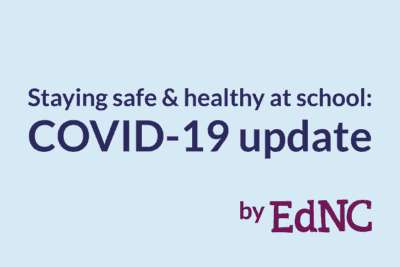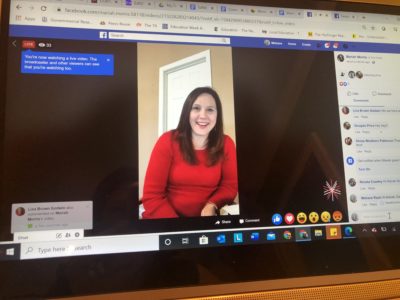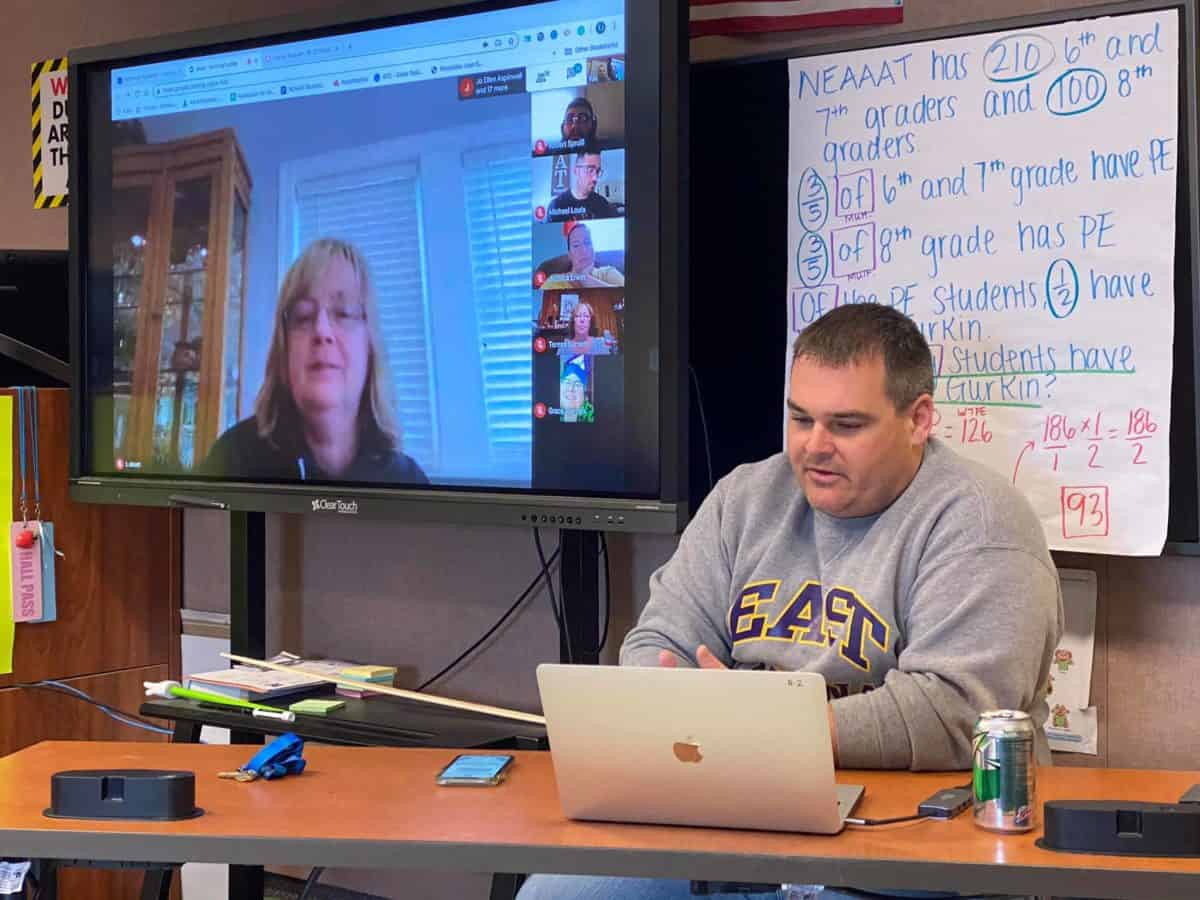

On March 13, one day before Gov. Roy Cooper announced that all North Carolina public schools would close for at least two weeks to slow the spread of COVID-19, the state Department of Public Instruction (DPI) hosted a webinar providing resources on how some districts go about distance learning.
“This is a truly unprecedented, trying time for schools, education in North Carolina, and our nation. I want to thank you for your leadership during this rapidly evolving situation,” State Superintendent of Public Instruction Mark Johnson said. “Right now in this webinar, we’re making sure that we are proactively helping you with remote learning options.”
Eliz Colbert, executive director of the North Carolina Virtual Public School (also known as NCVirtual), opened up the presentation and announced that the school has opened enrollment for transfer students to their online programs in grades 9-12.
Priority consideration for enrollment will be given to tested courses, graduating seniors, and hard-to-staff courses, she said. Additionally, the NCVirtual teacher will continue to work with a district teacher in a co-teaching capacity — and schools will continue to have access to the teacher and course for the duration of the semester. School administrators may request student enrollment online.
DPI regional case managers are on the front lines of advocating for school districts according to Beverly Emory, deputy superintendent of district support.
“I think folks are feeling a little alone out there and I want to reiterate this is uncharted water, none of us have been through this type of thing before,” Emory said. “Please use your regional case manager. They have 24-hour access for us and they are your boots on the ground to advocate for your needs.”
Here is the full presentation, hosted by DPI, the Friday Institute for Educational Innovation, and NCVirtual, which includes further links to resources. Below is the recording of the full webinar.
Experience from the field
Northeast Academy for Aerospace and Advanced Technologies (NEAAAT) is technically located in Elizabeth City, but the school’s 580 students live in nine counties in northeastern North Carolina. The school relies on a blended model of both online distance learning and in-person curriculum, and calls themselves a “regional-remote” school. They are a Title I school that offers one-to-one technology with a Chromebook for every student.
Andrew Harris, CEO of NEAAAT, said that they take attendance in various ways including forms, assignments, and activity logs (where students receive credit for attendance when assignments are turned in due to extenuating circumstances or no internet). They call this their “protocol” — setting a plan for the day — and providing a structure for students to learn remotely.
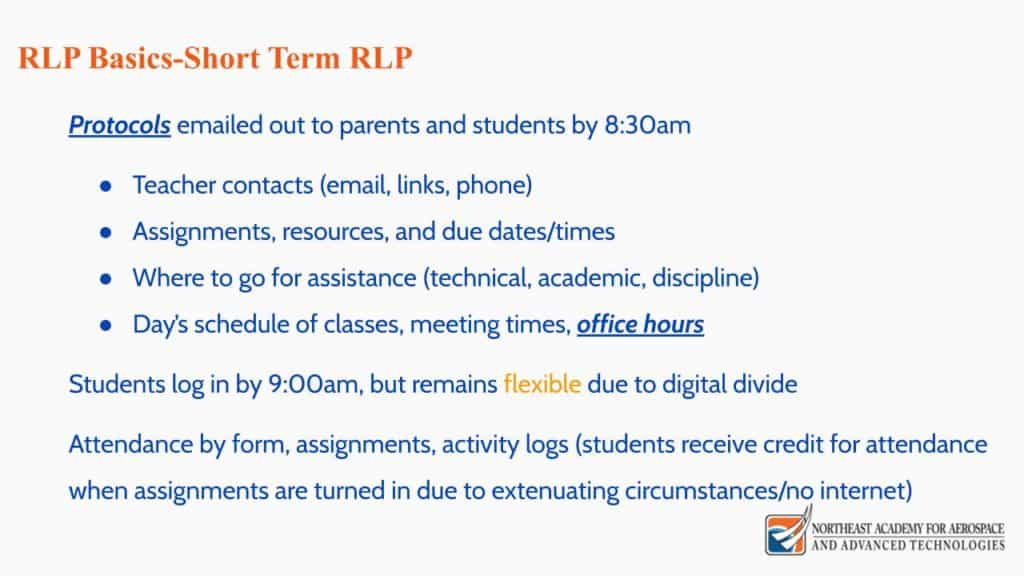
“It’s really important for remote learning to focus on the protocol. Our attendance is flexible,” said Caren Williams, director of digital teaching and learning at the school. “We have some students who finish assignments by midnight and we have students who log in at 9 a.m.”
This flexibility is important for accommodating extenuating circumstances, like working part-time for a family business, and varied access to the internet. Flexibility in both structure and attendance is important for success in distance learning, they said.
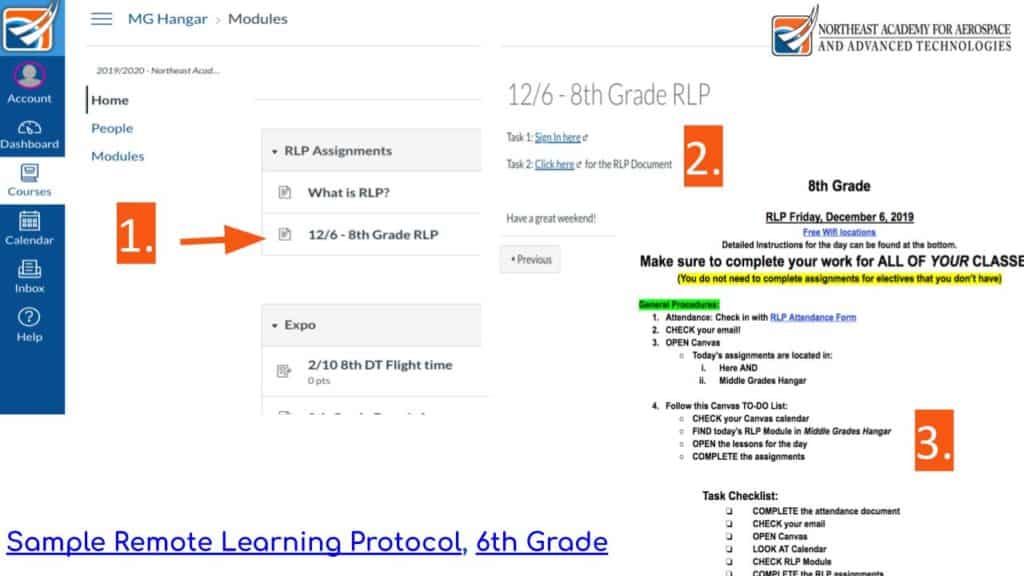
“I would definitely suggest providing a community asset map in the digital teaching and learning world and tend to think about that as where Wi-Fi is available,” Harris said.
NEAAAT is making plans to use “bus couriers” for assignment submission, Wi-Fi access, check-ins, technical assistance, paper assignments, and flash drive resources. A flexible calendar and daily schedule, mixed in with process improvements, are part of their additions and adjustments as remote learning is ever-evolving.
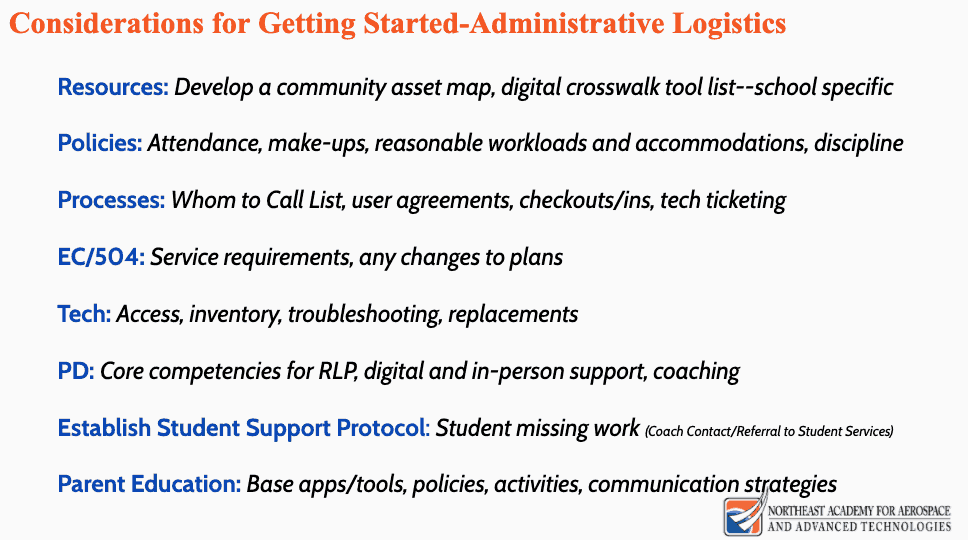

“We did create a ‘digital crosswalk’ where we ran a column in a spreadsheet of teaching strategies that are face-to-face and we linked those with the digital strategies that would be used,” Williams said. “Once you have that crosswalk, the teachers start using it to transfer their lesson plans.”
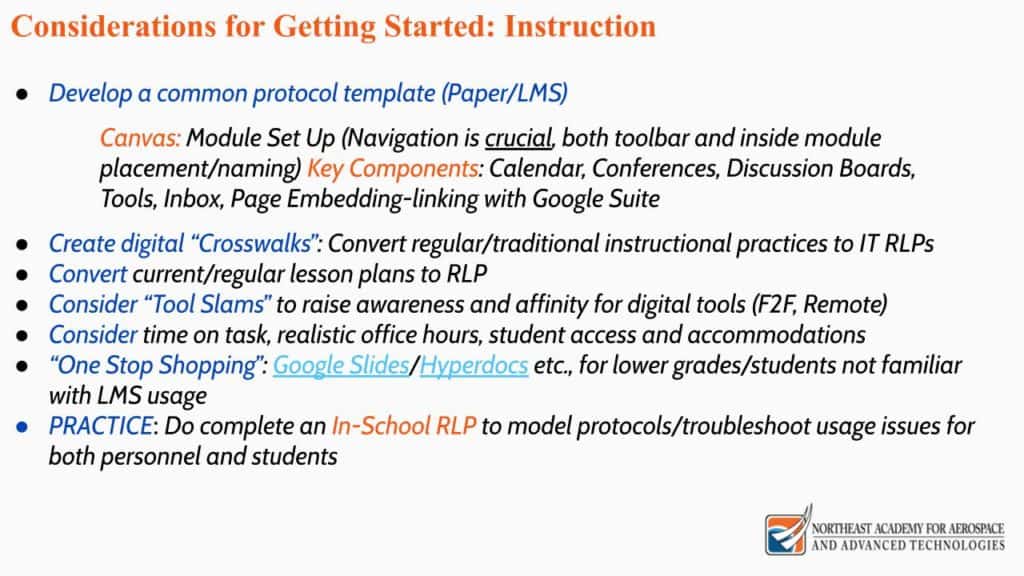
They shared comments from parents, which were submitted in a daily Google Form sent to both students and parents.
“I walked into my daughter’s bedroom and she was having class! I mean real class! The teachers and the students were rolling right along as if they were at school,” one parent wrote.
On Thursday and Friday, NEAAAT will reconvene with “a set of activities that have been carefully and thoughtfully designed to reconnect staff and students with one another.”
The full presentation from NEAAAT is available here.
Join live this week
The North Carolina Virtual Public School is hosting two live webinars this week which will be an “interactive conversation focused on sharing best practices for digitizing your content and supporting students in learning online.”
- Register to attend Thursday, March 19, 10 a.m.
- Register to attend Thursday, March 19, 1 p.m.
- Register to attend Thursday, March 19, 4 p.m.
- Register to attend Friday, March 20, 11 a.m.
- Register to attend Friday, March 20, 2 p.m.


